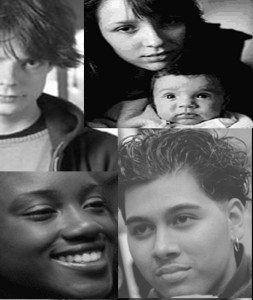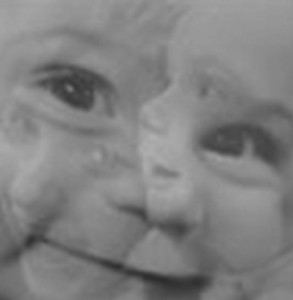There are several projects underway in the Ad Lab.
These projects share a common purpose to understand pathways from adverse life experiences toward both positive and problematic adaptation. This work is fueled by a passion for informing practice and policy that supports at-risk youth and their families within a strength-based, empowerment oriented framework.
Child Representation & Regulation Project (ChiRRP)
This project aims to understand the specific relations between how children think and feel about themselves, others, and relationships (i.e., representation) and various indices of regulation (e.g., emotional, behavioral, physiological, and interpersonal). We are interested in understanding how early experience affects these representational and regulatory systems to influence child adaptation. We are especially interested in how features of the parent-child relationship may strengthen or undermine these systems individually, and/or the relationship between them.
The ChiRRP is a longitudinal study of 250 child-caregiver dyads that has been funded by the National Science Foundation (NSF) and the National Institute of Child and Human Development (NICHD). We began assessing parents and children when they were 4, and have followed up with them at ages 5, 6, 7, 8, 10, and 12, 14, and through COVID-19. We are currently following up with families at age 17 (beginning Fall 2021). Families were recruited from various agencies, particularly those serving low-income families and/or families at risk for child maltreatment. Joined by their caregivers, children are evaluated in the Adversity and Adaptation Lab using behavioral observations of the child in a series of game-like tasks and of caregiver-child interactions. In addition, questionnaire and interview data are gathered from the child, caregivers, and teachers.
This study addresses key questions about the relation between representation and regulation, if and how these relations may vary as a function of early childhood experiences, and how these systems individual and interactively affect children’s socioemotional and academic functioning.
Adapting to Aging Out:
Risk & Resilience Among Former Foster Youth
 With the support of the John Randolph and Dora Haynes Foundation and the William T. Grant Foundation, this five-year investigation explored the experiences of 172 youth (ages 17-21) as they transitioned out of the foster care system and into adulthood, a process commonly referred to as “aging out”. This mixed methods longitudinal study affords a unique lens on foster youths’ pathways through education, employment, health, and relationships across their first 5 years following system emancipation. Data were collected at four interview waves 1, 2, 3.5, and 5 years post-emancipation. This study sheds light on how early relational experiences, and the expectations they engender, shape development and adaptation for transition-aged foster youths.
With the support of the John Randolph and Dora Haynes Foundation and the William T. Grant Foundation, this five-year investigation explored the experiences of 172 youth (ages 17-21) as they transitioned out of the foster care system and into adulthood, a process commonly referred to as “aging out”. This mixed methods longitudinal study affords a unique lens on foster youths’ pathways through education, employment, health, and relationships across their first 5 years following system emancipation. Data were collected at four interview waves 1, 2, 3.5, and 5 years post-emancipation. This study sheds light on how early relational experiences, and the expectations they engender, shape development and adaptation for transition-aged foster youths.
In 2012, a new policy to provide youths with extended foster care supports until age 21 went into effect in California. Informed by the Adapting to Aging Out Study, we launched a second investigation with a new sample of youth who came of age after 2012 to understand how the nature of foster youths’ relationships with their social workers might influence youths’ engagement with extended care resources. This study, Settings for Success: Foster youths and social workers in communication and collaboration, drew on audio recorded conversations between transition-aged foster youths and their social workers about the transition to adulthood and the opportunities in extended care. Data from these studies are abundant and available for analysis and interpretation.
The Young Adult Adaptation Survey (YAAS)

Amidst dramatic increases in distress and risk-taking among adolescents and young adults, the Young Adult Adaptation Survey sought to examine the etiology and developmental pathways underlying trajectories toward and away from specific (mal)adaptive outcomes. In keeping with the AD Lab’s interest in both positive and negative development, we assessed processes leading to psychopathology (e.g., substance use, dating violence, risk-taking), as well as those contributing to competence (e.g., self-esteem, emotion regulation, positive attachment to friends and family). We were especially interested in mechanisms that explain if and how adverse and traumatic experiences in childhood influence these developmental pathways.
Data collection for this survey of ~2700 college students is complete. Available data include assessments of adverse life events in childhood, various symptoms related to traumatic experience, and adaptation with respect to age-salient developmental issues in young adulthood, including relationships with peers, partners, and family, and adjustment to school and work. Data were gathered via the individual administration of questionnaires to students drawn from the UCR participant pool.


